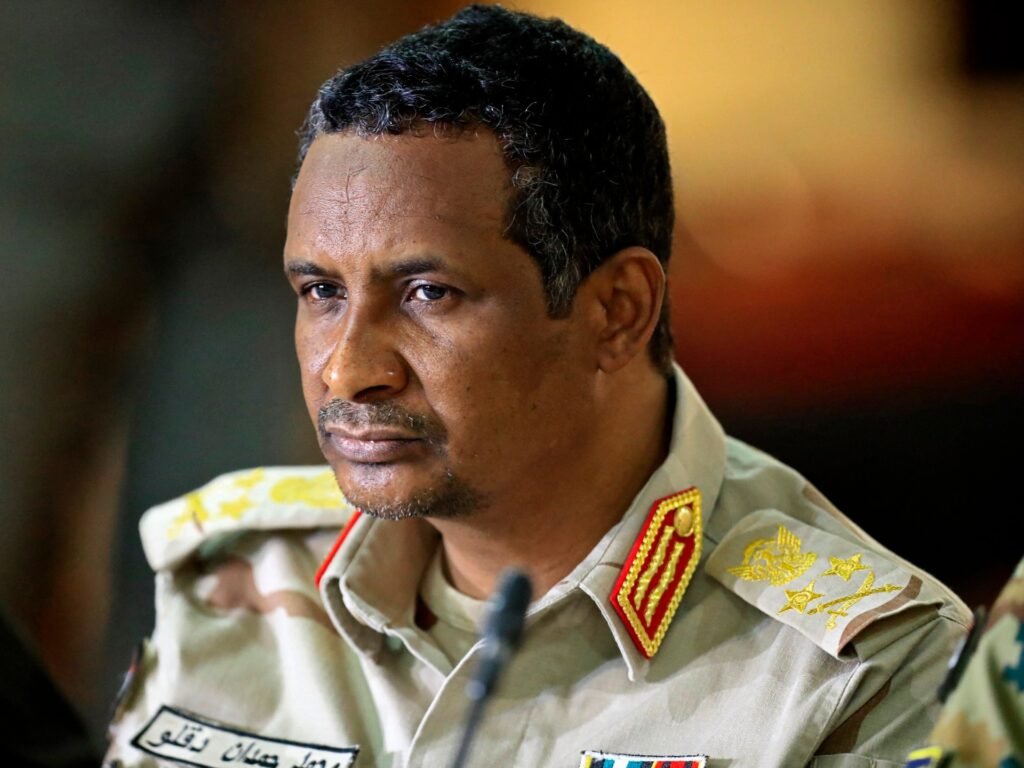The RSF-backed parallel government could complicate peace talks and cement a de facto partition in Sudan, say analysts.
The Tasis Alliance, a coalition of Sudanese armed groups formed in February, has unveiled a parallel ”transitional peace” government to rival Sudan’s wartime government in Port Sudan.
Tasis is based on a partnership between the Rapid Support Forces (RSF) and the Sudan People’s Liberation Movement-North (SPLM-N), a powerful armed group that controls swaths of South Kordofan and Blue Nile states in southern Sudan.
SPLM-N has been fighting a rebellion against the central government and the Sudanese Armed Forces (SAF) for 40 years – a conflict rooted in aggressive land grabs by central elites.
The RSF and SAF are former allies, yet a power struggle triggered an all-out civil war in April 2023.
Analysts have told media that Tasis aims to challenge SAF for legitimacy and power after more than two years of conflict.
“The Tasis government is the RSF’s latest desperate attempt to rebrand itself as a state authority rather than a militia,” said Anette Hoffmann, an expert on Sudan at the Clingendale Institute think-tank in the Netherlands.
“Yet all their actions have continued to prove the opposite. While announcing their government … RSF forces and their allies were besieging entire state capitals and starving innocent civilians,” she told media.
Why Tasis wants to be a state authority
Tasis announced its government just three days before a new round of Sudan peace talks is set to begin on July 29 in the United States.
The talks will bring together representatives from the Sudan Quartet – Egypt, Saudi Arabia, the United Arab Emirates and the US. Neither SAF nor the RSF will be included in this round, according to Africa Intelligence.
Regardless, the RSF has long been wary of being dismissed as a mere “armed group” in ceasefire negotiations and left out of the circles of power and influence in a post-war Sudan due to a lack of international legitimacy.
By forming its own government, the Tasis Alliance aims to garner recognition from some friendly states and boost its bargaining position in future negotiations, said Kholood Khair, an expert on Sudan and the founder of the Confluence Advisory think-tank.
“What’s interesting is that there has been so little disclosed about these new talks, yet it has started a fury across Sudan and catalysed the formation of these two governments,” Khair told media.
She added that the army adopted a similar ploy in May when it appointed Kamel Idris as prime minister in Port Sudan, a strategic city on the Red Sea Coast.
Idris recently appointed five new ministers to round out his new government, just a day after Tasis announced its parallel administration.
Recycled blueprint
Like Port Sudan, the RSF-backed government is run by a council of military elites and civilian loyalists.
The RSF’s leader, Mohamed Hamdan “Hemedti” Dagalo, heads the Tasis’s 15-member Presidential Council. SPLM-N leader Abdelaziz al-Hilu serves as his deputy.
A reported 47 percent of posts in the new administration went to RSF-aligned armed commanders and civil servants, while SPLM-N was given about one-third of the posts.
The rest were handed out to smaller armed groups and political parties who advantageously joined Tasis to boost their relevance, as previously reported by media.
Post appointees include Suleiman Sandal from the Justice and Equality Movement (JEM) – a rebel group that emerged out of the Darfur wars and splintered in the current war – who was made interior minister.
Al-Tahir Hajar, from the Sudan Liberation Forces Gathering (SLFG), which also emerged from the Darfur wars, is a prominent member of the Tasis leadership council.
The prime minister of the Tasis government is Mohamed Hassan al-Ta’aishi, a politician from Darfur and a former member of the transitional Sovereign Council that led Sudan shortly after former President Omar al-Bashir was toppled in 2019.
The Sovereign Council was headed by SAF chief Abdel Fattah al-Burhan and Hemedti. The two were supposed to step down from power in 2021, yet they orchestrated a coup to dismiss the then-civilian cabinet and dash hopes for democracy.
Cementing the rift
Since SAF recaptured the capital Khartoum from the RSF in March, the former has been in control of the east and centre of the country, while the RSF has attempted to consolidate its control over the western and southern regions.
The Tasis government may have ended up cementing that division more than helping it gain an advantage at the negotiating table, said Alan Boswell, an expert on Sudan with International Crisis Group.
“The RSF aims to be legitimate as a national actor,” he said. “Yet [this government] makes de facto partition all the more likely, even if that is not the strategic intent.”
Khair added that the creation of a second government further incentivises armed groups to accumulate power in hopes of scoring a post in one of the two administrations.
“This [new government] really catalyses the proliferation of different armed groups,” she said. “More armed groups will mobilise … to win a position [in one of the two governments] during wartime.”
“This is a reality that really entrenches war dynamics.”
